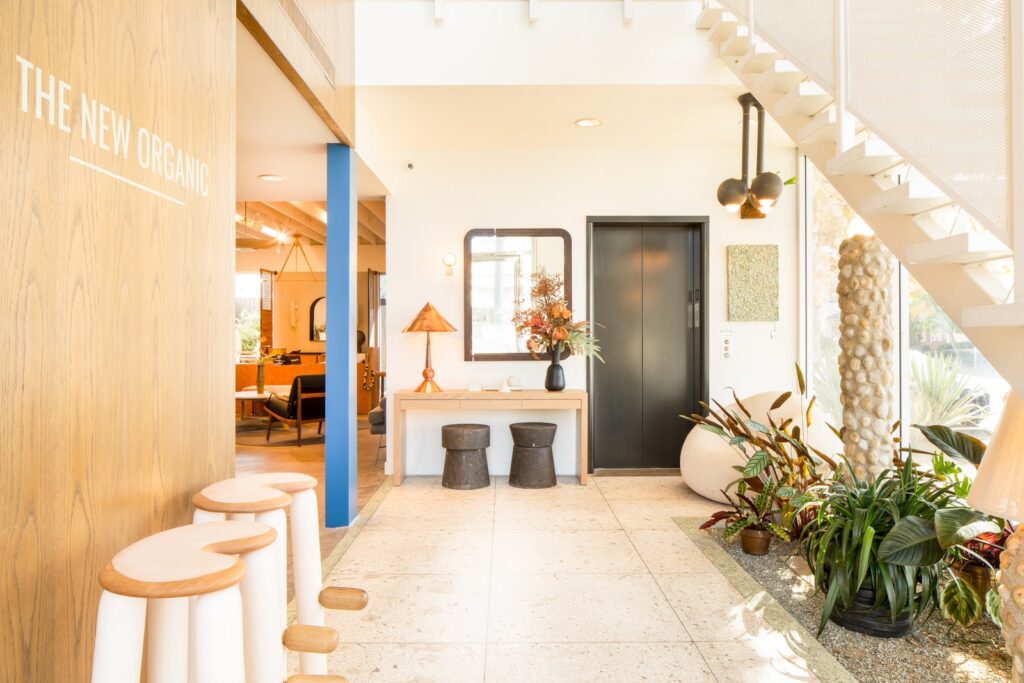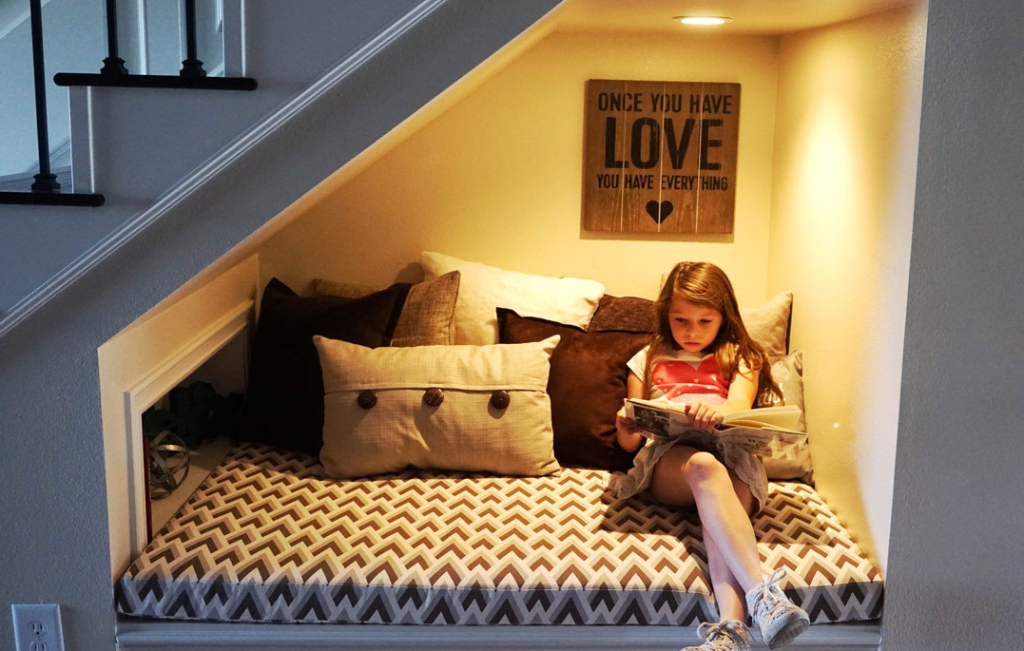
Discovering the Ideal Interior Design Course for Beginners
 Embarking on a journey into interior design as a beginner is both exhilarating and daunting. With many courses available, each promising to unlock your creative potential and shape your design prowess, how do you discern the best path forward? In this guide, we delve into the essential factors to consider when choosing the perfect interior design course for beginners, ensuring a fulfilling and enriching learning experience.
Embarking on a journey into interior design as a beginner is both exhilarating and daunting. With many courses available, each promising to unlock your creative potential and shape your design prowess, how do you discern the best path forward? In this guide, we delve into the essential factors to consider when choosing the perfect interior design course for beginners, ensuring a fulfilling and enriching learning experience.
Essential Factors To Consider When Choosing The Perfect Interior Design Course
1. Define Your Goals and Interests
Finding the best interior design course for beginners involves several key considerations that can guide you toward a fulfilling and enriching learning experience. First and foremost, it’s crucial to define your goals and interests within the field of interior design. Reflect on whether you’re interested in residential or commercial design, sustainable practices, digital rendering, or specific design styles. Understanding your aspirations will help you narrow down your options and choose a course that aligns with your interests and career goals.
2. Research Course Content
Once you’ve identified your interests, research the content of potential interior design courses. Look for comprehensive curriculums that cover essential topics such as design principles, space planning, color theory, materials, and software proficiency. Courses that offer hands-on projects, real-world case studies, and opportunities for portfolio development can provide valuable practical experience that prepares you for the industry.
3. Accreditation and Reputation
Accreditation and reputation are crucial factors to consider when evaluating interior design courses. Look for courses offered by accredited institutions or recognized organizations within the design industry. Research reviews, testimonials, and alumni success stories to gauge the course’s reputation and the experiences of past students. A reputable course with a track record of producing successful graduates can provide confidence in its quality and relevance to your career aspirations.
4. Instructor Expertise
Instructor expertise plays a significant role in the quality of education you’ll receive. Look for courses led by experienced professionals with a diverse background in interior design. Instructors who are active in the industry bring real-world insights, industry connections, and updated knowledge of current trends and practices to the classroom. Consider researching the backgrounds and qualifications of the course instructors to ensure they can provide valuable guidance and mentorship throughout your learning journey.
5. Mode of Delivery
The mode of delivery is another important consideration. Some courses offer in-person classes, providing hands-on experience and interaction with instructors and peers. Others are conducted online, offering flexibility and accessibility for self-paced learning. Consider your learning style, schedule, and preferences when choosing between in-person or online courses. Choose a mode of delivery that aligns with your needs and allows you to fully engage with the course material.
6. Resources and Support
Evaluate the resources and support provided by the course. Access to design software, libraries, workshops, and mentorship programs can enhance your learning experience and skill development. Additionally, consider the availability of career services, internships, or networking opportunities that can help you kickstart your career in interior design upon completion of the course.
7. Cost and Affordability
Cost and affordability are practical factors to consider when choosing an interior design course. Compare the tuition fees, payment plans, and financial aid options offered by different courses. While cost is important, it should not be the sole determinant. Consider the value, quality of education, and potential return on investment in terms of career opportunities and skill development. Look for courses that offer a balance of affordability and quality education.
8. Industry Connections and Alumni Network
An interior design course that fosters industry connections and has a robust alumni network can provide valuable networking opportunities, mentorship, and job prospects. Research whether the course facilitates internships, industry partnerships, or alumni events that can enrich your learning experience and career prospects.
9. Trial Classes or Demos
Some courses offer trial classes, demos, or free resources that allow you to experience their teaching style, course content, and learning platform before enrolling. Take advantage of these opportunities to assess if the course meets your expectations and learning needs
10. Trust Your Instincts
Lastly, trust your instincts and intuition when choosing the best interior design course for beginners. Select a course that resonates with your passion, aligns with your goals, and offers a supportive learning environment. Remember that learning is a journey, and choosing the right course is the first step toward realizing your potential as an interior designer. By considering these essential factors and trusting your instincts, you can find the best interior design course that sets you on the path to a successful and fulfilling career in interior design.
5 best interior design courses for beginners
 New York School of Interior Design (NYSID):
New York School of Interior Design (NYSID):
The New York School of Interior Design (NYSID) stands as a beacon of excellence in interior design education, renowned for its innovative programs and industry-leading curriculum. As a specialized institution focused solely on interior design, NYSID offers a comprehensive range of courses and degrees tailored to meet the needs of both beginners and seasoned professionals. At the heart of NYSID’s approach is a deep commitment to nurturing creativity, critical thinking, and technical proficiency in students, preparing them for successful careers in the dynamic field of interior design.
NYSID’s curriculum is designed to provide a holistic understanding of design principles, space planning, color theory, materials, sustainability, and emerging trends in the industry. Students engage in hands-on projects, studio courses, and real-world simulations, gaining practical skills and experience under the guidance of experienced faculty members who are industry practitioners themselves. The school’s strong emphasis on design theory and history ensures that students develop a comprehensive understanding of the cultural, historical, and social dimensions of interior design.
One of NYSID’s standout features is its state-of-the-art facilities, including design studios, computer labs with industry-standard software, material libraries, and exhibition spaces. These resources allow students to explore and experiment with different design techniques, tools, and technologies, fostering creativity and innovation in their work. Additionally, NYSID’s partnerships with leading design firms, industry professionals, and organizations provide students with valuable networking opportunities, internships, and mentorship programs, helping them bridge the gap between academia and the professional world.
NYSID’s commitment to excellence is reflected in its accreditation by the Middle States Commission on Higher Education (MSCHE) and the Council for Interior Design Accreditation (CIDA), ensuring that its programs meet rigorous quality standards and industry benchmarks. Graduates of NYSID emerge as well-rounded designers equipped with a deep understanding of design principles, technical skills, ethical practices, and a strong design aesthetic, ready to make meaningful contributions to the ever-evolving field of interior design.
The Interior Design Institute:
The Interior Design Institute (IDI) stands out as a premier institution dedicated to providing high-quality interior design education to students worldwide. Offering comprehensive online courses, IDI caters to beginners and aspiring designers looking to build a solid foundation in the field of interior design. What sets IDI apart is its flexible and accessible approach, allowing students to learn at their own pace from anywhere in the world.
IDI’s curriculum is designed by industry experts and covers a wide range of topics essential for interior design success. From design principles and spatial awareness to color theory, materials selection, and project management, students gain a comprehensive understanding of the fundamentals of interior design. The courses are structured to be interactive and engaging, with practical assignments, design projects, and mentorship from experienced professionals.
One of IDI’s strengths lies in its emphasis on practical skills development. Through the use of industry-standard software tools and techniques, students learn how to create mood boards, floor plans, 3D renderings, and design presentations. This hands-on approach allows students to apply theoretical concepts to real-world design scenarios, honing their creativity and problem-solving abilities.
IDI’s online platform provides a wealth of resources to support student learning, including video tutorials, design libraries, forums for collaboration and discussion, and access to industry insights and trends. Additionally, IDI offers ongoing support and guidance from dedicated tutors who provide personalized feedback and guidance throughout the course.
Upon completion of their studies, IDI graduates emerge with a strong portfolio of work showcasing their design skills and creativity. The institute’s reputation for excellence, industry relevance, and practical training ensures that graduates are well-prepared to pursue successful careers in various sectors of the interior design industry, from residential and commercial design to hospitality, retail, and more.
Parsons School of Design:
 The Parsons School of Design, located in New York City, stands as a global leader in art and design education, offering a renowned interior design program that prepares students for success in the creative industries. As part of The New School, Parsons combines academic rigor with innovative approaches to design, fostering a dynamic learning environment that encourages experimentation, collaboration, and critical thinking.
The Parsons School of Design, located in New York City, stands as a global leader in art and design education, offering a renowned interior design program that prepares students for success in the creative industries. As part of The New School, Parsons combines academic rigor with innovative approaches to design, fostering a dynamic learning environment that encourages experimentation, collaboration, and critical thinking.
At Parsons, the interior design program is characterized by its interdisciplinary approach, integrating design theory, technical skills, and hands-on studio work. Students explore a wide range of topics, including spatial planning, environmental sustainability, materials and finishes, lighting design, and digital technologies. The curriculum emphasizes the relationship between design and society, encouraging students to consider social, cultural, and environmental factors in their design solutions.
One of the hallmarks of Parsons’ interior design program is its strong emphasis on experiential learning. Students engage in studio courses, workshops, design charrettes, and collaborative projects that allow them to apply theoretical knowledge to real-world design challenges. The school’s state-of-the-art facilities, including design studios, fabrication labs, and digital media centers, provide students with access to cutting-edge tools and technologies.
Parsons’ faculty consists of accomplished designers, architects, and scholars who bring industry expertise and creative insights to the classroom. Through mentorship, critiques, and professional development opportunities, students receive personalized guidance and support as they develop their design portfolios and career pathways.
Furthermore, Parsons’ location in New York City, a hub of art, culture, and design, offers students unparalleled opportunities for networking, internships, and exposure to the global design community. Graduates of Parsons emerge with a deep understanding of design principles, a strong portfolio of work, and the skills and confidence to thrive in diverse roles within the interior design profession, ranging from residential and commercial design to hospitality, retail, exhibition design, and beyond
Udemy:
 Udemy, although not a traditional interior design school, is a widely recognized online learning platform that offers a plethora of interior design courses suitable for beginners, enthusiasts, and professionals alike. Through Udemy, students can access a diverse range of courses taught by experienced instructors from around the world, making it a flexible and accessible option for individuals interested in honing their interior design skills.
Udemy, although not a traditional interior design school, is a widely recognized online learning platform that offers a plethora of interior design courses suitable for beginners, enthusiasts, and professionals alike. Through Udemy, students can access a diverse range of courses taught by experienced instructors from around the world, making it a flexible and accessible option for individuals interested in honing their interior design skills.
One of the key advantages of Udemy is its extensive catalog of interior design courses covering a wide spectrum of topics. These courses delve into design fundamentals, space planning, color theory, materials and finishes, furniture design, lighting design, 3D modeling, and interior decorating techniques. Students can choose courses based on their specific interests, skill levels, and learning objectives.
Udemy’s platform is user-friendly and offers a variety of learning formats, including video lectures, quizzes, assignments, downloadable resources, and discussion forums. This interactive approach allows students to learn at their own pace, review course materials as needed, and engage with instructors and fellow students for support and feedback.
Furthermore, Udemy courses are often more affordable compared to traditional design schools, making them accessible to a broader audience of learners. Students can also access courses from anywhere with an internet connection, providing flexibility and convenience for those with busy schedules or geographic constraints.
While Udemy may not offer the same level of structured curriculum or accreditation as traditional design schools, it serves as a valuable resource for individuals seeking to expand their knowledge, learn new skills, and explore various aspects of interior design. Many instructors on Udemy are industry professionals with practical insights and expertise, offering valuable insights and real-world perspectives to enhance the learning experience
The Interior Design School:
 The Interior Design School, based in London, is a prestigious institution known for its comprehensive interior design programs and industry-focused approach to education. As a specialized interior design school, it offers a range of courses tailored to beginners, aspiring designers, and professionals seeking to enhance their skills and expertise in the field.
The Interior Design School, based in London, is a prestigious institution known for its comprehensive interior design programs and industry-focused approach to education. As a specialized interior design school, it offers a range of courses tailored to beginners, aspiring designers, and professionals seeking to enhance their skills and expertise in the field.
At the Interior Design School, students delve into a rich curriculum that covers fundamental design principles, spatial planning, color theory, materials and finishes, lighting design, furniture design, and digital rendering techniques. The courses are designed to provide a well-rounded education that prepares students for the challenges and demands of the interior design profession.
One of the notable features of the Interior Design School is its emphasis on practical skills development. Students engage in hands-on projects, design workshops, and studio courses that allow them to apply theoretical knowledge to real-world design scenarios. Through industry-relevant projects and collaborations with design firms, students gain valuable experience and insights into the professional practice of interior design.
The school’s faculty comprises experienced designers, architects, and industry professionals who bring a wealth of knowledge and expertise to the classroom. They provide mentorship, guidance, and feedback to students, helping them develop their design portfolios and build a strong foundation for their careers.
The Interior Design School also offers a supportive learning environment with small class sizes, personalized attention, and access to industry resources and networking opportunities. Students benefit from guest lectures, industry visits, and internships that provide exposure to the latest trends, technologies, and best practices in the field.
Upon graduation, students of the Interior Design School emerge with a deep understanding of design principles, technical skills, and a portfolio of work that showcases their creativity and proficiency. Whether pursuing careers in residential design, commercial design, hospitality, or retail, graduates are well-equipped to succeed in the competitive and dynamic world of interior design.
By considering these essential factors, you can navigate the vast landscape of interior design courses and embark on a transformative learning experience that fuels your creativity, hones your skills, and sets you on the path to a rewarding career in interior design.
When comparing these courses, consider factors such as accreditation, curriculum content, instructor qualifications, mode of delivery (in-person or online), resources and facilities, student support services, reviews and testimonials, and cost. Choose a course that aligns with your interests, career goals, learning style, and budget, ensuring a rewarding experience in the field of interior design











1 comment on “How to Know the Ideal Interior Design Course for Beginners”